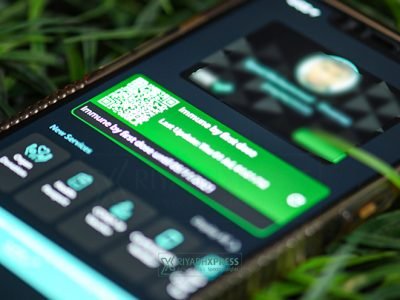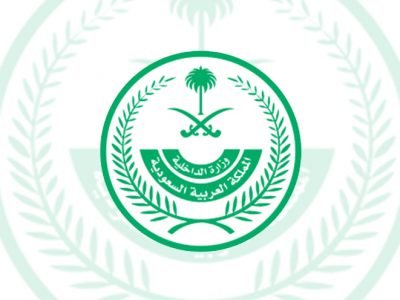Haj Protocols to provide a safe environment in 2020: According to the Hajj protocols, entry to the holy sites (Mona, Muzdalifah, Arafat) is prohibited without permission, starting from the date of 11/28/1441 AH until the end of the twelfth day of Dhu al-Hijjah 1441 AH.
It has been decided to not allow any person on the path of Hajj who has virus symptoms (heat, cough, or sudden loss of sense of smell and taste). This includes workers and pilgrims until the symptoms disappear and a recovery decision is obtained, according to the report of the attending physician.
Haj Protocols to provide safe environment in 2020
According to the Hajj protocols, care must be taken to wear masks for the pilgrims and all workers at all times. And dispose of them in the proper manner and in the designated place.
- Waiting for pilgrims at gathering points organized to maintain social distance. And restaurants with visible signs or stickers on the floor ensuring a distance of one and a half meters between individuals.
- Under Hajj protocols, sharing personal tools and equipment between pilgrims (such as protective equipment, communication devices, clothing, shaving products, or towels) is prohibited.
- Under the Hajj protocols, the number of people allowed to use elevators is determined to ensure that recommended social spaces maintained.
- Use markers to guarantee a distance of one and a half meters between individuals in the escalators or the normal stairs.
- It is necessary to adhere to regular environmental disinfection in a scheduled period. Focusing on places where contact is more likely, especially such as reception points, seating seats, waiting for areas, as well as door, handles, dining tables, seat backs, etc. after each use.
Wastes removal – Haj Protocols
According to the Hajj protocols, germs removed with soap and water before every disinfection process. For disinfection, the instructions in the Practical Handbook for Cleaning and Disinfection of Public Facilities to Fight Covid-19 Infection issued by the National Center for Disease Prevention and Control are followed.
- Take care to clean the bathrooms and baths regularly, after the ablution dates, to pray with approved disinfectants.
- Under the Hajj protocols, a record of the disinfection times of surfaces and toilets required.
- Distributing hand sanitizers and placing them in prominent places, in gathering areas, corridors, and toilets.
- Ensure good ventilation in all locations of pilgrims and workers.
- There should be trash and wastebaskets. And they should be of the type that works without the need for touch. The waste should be disposed of continuously.
- Place hand sanitizers and instruction boards for hand disinfection next to interactive devices such as query screens, ATMs, and vending machines.
- Remove all printed copies and paper magazines.
- Under the Hajj protocols, congregational prayers are permitted. With an emphasis on wearing a cloth mask during congregational prayers. Maintaining a distance between worshipers and referring to protocols for mosques.
Residential buildings
- Employees must wear masks while working, including reception stations and before entering guest rooms
- Guests must wear masks when outside the rooms.
- It is necessary to adhere to regular environmental disinfection on a scheduled basis. With a focus on places where contact is most likely, especially during the day. Such as the reception station and waiting areas, as well as door handles, dining tables, seat rests, elevator keys, etc.
- Under Hajj protocols, bags must be disinfected, the baggage cart will be disinfected periodically. And a designated worker assigned to take over and must be trained in the disinfection process.
Food places – Haj Protocols
- Providing drinking water and Zamzam water in packages intended for individuals and single-use.
- Under the Hajj protocols, all refrigerators must be removed or disabled in the Great Mosque of Mecca and holy sites.
- Under Hajj protocols, meals are limited to pre-packaged and prepackaged foods, to be served individually for each pilgrim.
- Alcoholic hand sanitizers should be provided in any place designated for serving food in a clear and accessible manner.
- Emphasis on workers to wash their hands routinely and repeatedly for forty seconds at least every time during work shifts. Either by using water or using an alcohol-based hand sanitizer for a period of not less than twenty seconds in the event that soap and water are not available, especially at the following times:
- Before you start preparing and preparing food
- Before serving food to customers
- After using the bathroom
- After coming in contact with potentially contaminated items (such as gloves, cloths, masks, and waste)
- Immediately after removing gloves or masks.
- Under the Hajj protocols, dishes, cups, and other single-use eating utensils are used in the event of serving food. With utensils being cleaned well and being carefully sanitized and approved before re-use to serve food.
- It is allowed to use cloth covers on tables. With an emphasis on changing and cleaning them after each use. And it is preferable to replace them with tables that can be easily cleaned after each use.
- Under Hajj protocols, personal protective equipment required for workers. Such as cloth masks, or those covering the nose and mouth, hairnets, and single-use body wear.
The workers – Haj Protocols
Under Hajj protocols, workers working in high-risk departments such as cooking, food production, and beverage processing. They should wear personal protective equipment routinely and be constantly changing.
- Tissues distributed and placed on all tables.
- In the event that food is served in places designated for catering. The social distancing applied in the restaurant (between tables, places for receiving orders, waiting for places). Ensuring a distance of one and a half to two meters between individuals.
- Reducing the number of employees in the food preparation area and preventing overcrowding of workers.
- Organizing staff work in groups or teams in the form of shifts to reduce direct communication between groups.
Buses
- A bus is assigned to each group and a seat number assigned to the same pilgrim during the entire Hajj trip. And adhere to the same seat for all pilgrims during the travel.
- Under the Hajj protocols, families allowed to sit together, according to possibility.
- Allocating different doors for riding and disembarkation, with the exception of people with mobility difficulties who need help.
- The bus should be suspended until complete disinfection if a passenger is confirmed to have Covid-19.
- Provide Hand Santiziers and other hygiene cleaning products in the passenger compartment. With at least three disinfectants distributed and installed inside each compartment.
- The number of passengers inside the bus must not exceed 50% of the total capacity of the bus. And to maintain the physical spacing inside the bus by following the recommended policy and leaving an empty seat at least between each passenger.
- It is preferable for the passengers to carry their personal effects and belongings while riding the bus and inside it.
- Drivers and all passengers must wear cloth masks or nose and mouth covers at all times while on the bus.
- Under the Hajj protocols, drivers must avoid contact with passengers.
Barber shops
- The face shield should be used when serving the pilgrim, if available.
- Workers must wear gloves when serving the pilgrim, and gloves must be changed after each pilgrim.
- Each pilgrim should be wrapped with a clean cap. And the single-use garment that can be disposed of after each pilgrim must be used.
- Salon workers should use single-use protective neck straps and place them around the pilgrim’s neck when cutting hair.
- The tools used after each pilgrim (gloves, razors, sheath, etc.) should be disposed of immediately in a closed container.
- The shaving chair, especially the armrest, must be cleaned and disinfected. Also, shaving tools such as combs, brushes, and tool carts.
Arafa and Muzdalifah
According to the Hajj protocols, residency in the designated places must be adhered to and not deviate from the designated route by the organizer.
- Stressing commitment to wearing masks at all times for pilgrims while performing the ritual.
- The food served during the performance of these rituals limited to the pre-packaged only.
- Gatherings and meetings prevented and the recommended social separation distances between pilgrims preserved.
- The pilgrims distributed over the tents so that their number does not exceed 10 pilgrims per 50 square meters of the area of the tents. While maintaining a distance of at least 1.5 meters between each pilgrim and the other from all sides
- Preventing overcrowding in public baths and ablution washbasins. By placing floor stickers or disrupting the use of a number of baths or washbasins to ensure a safe distance of one and a half meters between each person.
Throwing pebbles
- Pilgrims must be provided with pre-sterilized gravel and placed or wrapped in sealed bags by the regulator.
- Pilgrims scheduled to visit the Jamarat facility. So that the number of pilgrims who throw stones at the same time does not exceed one group (fifty pilgrims) for each role of the Jamarat facility. Or by including a distance of one and a half to two meters at least between each person. And the other during the performance of the ritual throwing ritual.
- Provide adequate respirators and sterilization materials for all pilgrims and workers on the path of the stoning trip.
Grand Mosque in Mecca – Haj Protocols
- Familiarize the pilgrims and distribute them on all quest floors with paths to ensure the recommended physical spacing.
- According to the Hajj protocols, personal communication between the pilgrims and the prevention of gatherings in general. Commitment to social distancing should be minimized. With each person having a distance of at least a meter and a half. And supervision of that by the security men.
- Preventing touching or kissing the honorable Kaaba or the Black Stone and setting barriers. And supervisors to prevent proximity to these barriers.
- Specific entrances and exits allocated with organizers placed at the doors. To ensure the process of entry and exit of pilgrims and to prevent crowding or any stampede. And to ensure that there are distances between them, provided that the organizers are security.
- Crowding avoided at Zamzam drinking water coolers, and floor stickers to ensure social space. While preventing pilgrims from using water storage devices and cans used to store Zamzam water.
Bring food – Haj Protocols
- Preventing foods from the Makkah area from eating or eating in the outdoor arenas.
- Avoid overcrowding when baths and ablution washbasins by placing floor stickers.
- Distributing hand sanitizers with small packages and tissue paper to the pilgrims.
- The rugs of the Great Mosque of Mecca raised and the use of personal rugs by pilgrims.
- The used chairs and carts should be disinfected continuously after each use.
- Periodically cleaning and disinfection of shoes.
- Daily cleaning and disinfection of toilets, with care to ensure good ventilation and reduce the temperature.
Reporting and monitoring – Haj Protocols
- The temperature measured for all those on the pilgrimage route. This includes pilgrims and all workers daily and records the temperature.
- The applications approved by the Ministry of Health (Tatman – Tawkalna) installed on smart devices. And activate the location and BlueTooth feature on the device and log in there.
- Providing medical points or clinics inside residential buildings that work around the clock.
- Providing teams, ambulances, and a mobile intensive care bus at the housing buildings. So that they move to accompany the pilgrims when they are going to perform all rituals.
- A room or area to isolate the suspected cases from others. This includes employees or pilgrims inside the residential buildings and all facilities. Also, communicate with the competent authorities and take the necessary measures.
- All employees, pilgrims, and workers required to disclose respiratory symptoms or fever.
- Reporting a condition that has a high temperature or respiratory symptoms (coughing or shortness of breath). Suspected of having Covid-19 disease and specifying data and case numbers to transfer the case to the hospital.

Finally, follow Riyadh Xpress’s:
- Facebook: Click Here
- Twitter: Click Here
- Instagram: Click Here
In addition, check out the latest articles by Riyadh Xpress.
- Firstly, King Salman urged the world to respond to the human crises causes by Covid-19: Click Here.
- Secondly, Social Distancing Measures implemented in supermarkets: Click Here.
- Thirdly, the latest penalties on Iqama: Click Here.
- Fourthly, Disabled parking violation/fine in Saudi Arabia: Click Here.
- Lastly, hackers attack again to get your personal data: Click Here.
Check out the most viewed articles
- Firstly, one riyal shop in Riyadh: Click Here.
- Secondly, 5 Riyals Mall in Riyadh: Click Here.
- Thirdly, Riyal al Barakah: Click Here.
- Lastly, 20 new changes in Saudi Arabia in 2020: Click Here.
















Comments